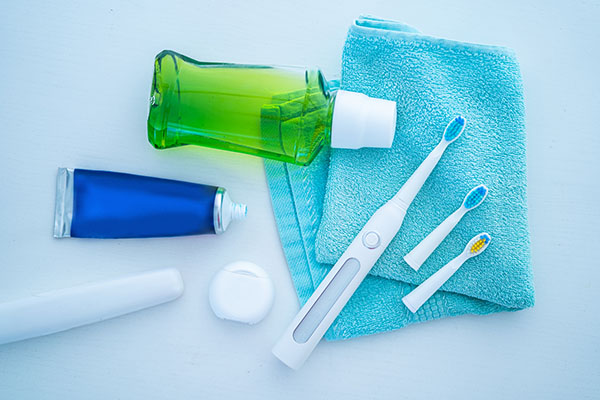General Dentistry: The Do’s and Don’ts of Flossing
 General dentistry recommends brushing twice daily and flossing once per day to protect your teeth against common dental problems like gum disease and tooth decay. Bacteria in the mouth can cause both issues.
General dentistry recommends brushing twice daily and flossing once per day to protect your teeth against common dental problems like gum disease and tooth decay. Bacteria in the mouth can cause both issues.
Oral bacteria feast on sugars left in the mouth after meals, forming plaque and acids that damage teeth. Plaque is the film that makes your mouth feel sticky when you wake up in the morning, and it contains bacteria and the acids that they produce. It hardens into tartar when left on teeth for a few days. Unlike plaque, tartar cannot be removed by brushing or flossing. It requires general dentistry treatments like teeth cleaning to get it off teeth.
Tartar contains bacteria and acids that damage teeth. It can also get into gum pockets, leading to gum disease. Brushing and flossing are the two most important things that you can do to protect your teeth against tooth decay and gum disease.
General dentistry tips for flossing
Flossing once daily is the standard set by the American Dental Association. When teeth are flossed does not matter. It can be done in the morning or at night before bed. It can be done before or after brushing teeth. Cleaning interdental spaces regularly helps prevent tartar build-up in these spaces.
Do’s and Don’ts
Here are a few things that patients can do to get more out of their flossing routine:
- Use a piece of floss that is about 18 inches long.
- Be gentle when pushing floss into the gum tissues between teeth.
- Gently push the floss below the gum line to clean the base of teeth, as this is where most plaque and tartar build-up takes place.
- Wrap the floss around each tooth to form a “C” when cleaning teeth; hold the floss tight against the tooth and gently move it up and down.
- Use small circular motions to clean areas below the gumline while the floss is wrapped around the teeth.
- Only use dental floss that has the American Dental Association’s stamp of approval.
- Use only the index or middle finger to wrap the ends of the floss.
- Leave about an inch of space between the floss when cleaning teeth.
- Thread the floss between teeth when cleaning them to avoid pulling out restorations like crowns or fillings.
- Consider using a water flosser or floss pick if conventional flossing is challenging.
Interdental spaces should be plaque-free after flossing sessions. While flossing helps protect teeth, it can irritate or damage gum tissues when done improperly. A few don’ts of flossing include:
- Avoid flossing aggressively.
- Experiment with the different types of floss until you find the right one for you.
- Avoid reusing floss.
- Do not be inconsistent with your flossing habits.
Flossing protects your interdental spaces
Do you want more flossing tips? Give us a call or stop by our Glendale clinic to learn more about oral hygiene from our dentist.
Request an appointment or call Simply Smiles Dentistry at Arrowhead at 623-335-1213 for an appointment in our Glendale office.
Related Posts
General dentistry practices are focused on the long-term prevention of oral health problems for their patient to help them avoid the need for restorative care, which is more invasive and expensive. One way they help with prevention is by recommending effective toothbrushes and toothpaste.Choosing the right toothbrush and toothpaste can make a big difference in…
Although practitioners of general dentistry talk about the harmful effects of sugar all the time, we all continue to consume it. This could be due to addiction or a lack of self-control. Sugar has many negative impacts on general health, but it also has a variety of repercussions on the teeth and gums. Since your…
General dentistry can help you develop good oral health habits in many ways. Going to the dentist’s office will also reduce your risk of having cavities and gum disease. But visiting the dentist every six months is not enough to promote healthy, strong teeth and gums. Daily habits such as brushing your teeth are vital.…


